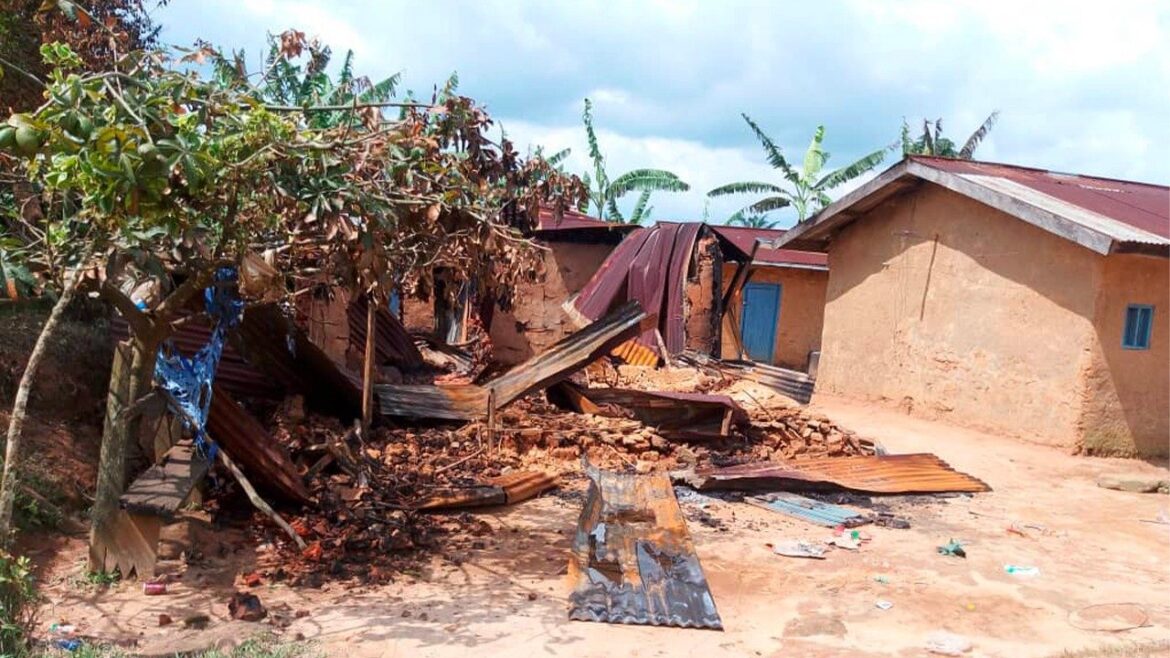
As violence continues in the Democratic Republic of the Congo, the director of the “Missionary Families without Borders” association shares the pain of local residents as near-daily massacres take place in the eastern part of the country.
By Giada Aquilino
A recent attack in Ntoyo, North Kivu has left at least 89 people dead and triggered further displacement of civilians.
Bishop Melchisédech Sikuli Paluku of Butembo-Beni called it “yet another horrific slaughter.”
On the night of September 8, armed men emerged from a nearby forest and attacked residents of Ntoyo—mostly Catholic and Protestant Christians—who were gathering for a funeral vigil.
At least 89 people were killed; dozens of homes and vehicles were set on fire. The raid has been blamed on the ADF (Allied Democratic Forces), a Ugandan-born rebel group that has pledged allegiance to the so-called Islamic State.
It is one among many armed factions in eastern DR Congo’s conflict, now in its fourth decade, alongside the M23 militia (March 23 Movement), which UN experts say is backed by at least 4,000 Rwandan soldiers—allegations Kigali has consistently denied.
Daily violence and displacement
After the Ntoyo attack, the roughly 2,500 inhabitants fled to the nearby mining settlement of Manguredjipa, 7 km away, where Congolese army units—and, since 2021, Ugandan troops—are present.
“Since 2014, every week, almost every day, there are massacres,” according to Justin Muhindo Masinda from Butembo.
His “Missionary Families without Borders” association runs educational, health, and humanitarian projects in North Kivu, including in his native village of Ntoyo.
In last week’s attack, his family home was burned. He is now sheltering 23 newly displaced people, including relatives.
“They were days of mourning, when people traditionally gather to support the bereaved,” he told Vatican News. “Toward evening the ‘terrorists’ arrived, armed with rifles and hammers, and began killing.”
The ADF’s violence, he said, has ravaged North Kivu and the country’s east “for many years.”
Motives, he added, are variously said to include seeking minerals—especially gold and coltan—in collaboration with M23.
How the raid unfolded
“On Sunday in Butembo we met with all the displaced,” Justin continued. “The testimonies were terrible. It’s a miracle they’re alive—some escaped their homes already in flames. They said the group of terrorists was very large, about 70 people, including women and children, dressed like soldiers. They even knew the names of some villagers, which suggests they had watched the village beforehand to learn the layout without people realizing.”
Justin noted similar attacks in nearby villages in recent days, part of a wider pattern of violence that in July struck worshippers and youths in Eucharistic adoration at the Catholic church in Komanda, Ituri.
To that community, Pope Leo XIV expressed closeness and deep sorrow, praying that the blood of those “martyrs” would become “a seed of peace, reconciliation, fraternity, and love for the entire Congolese people.”
‘We need peace’
“The people need peace,” Justin said, “because only then can we study, receive care, and think about development. Without it, we cannot go to the fields to farm; many children cannot attend school; many hospitals and health centers have been destroyed. To our leaders and the international community we say: we only need someone to tell us, ‘I bring peace, and people will no longer be killed.’”

